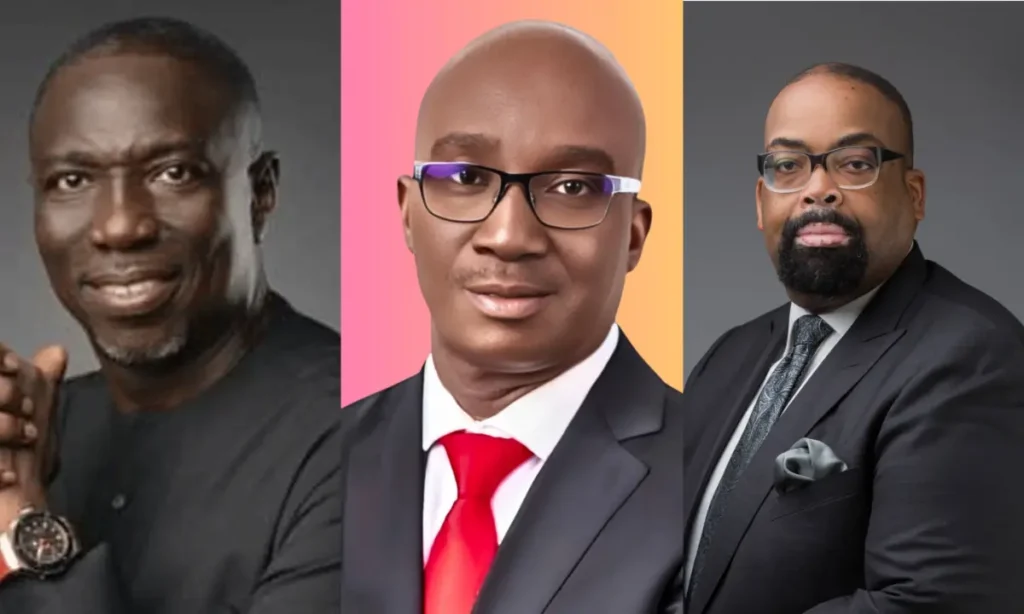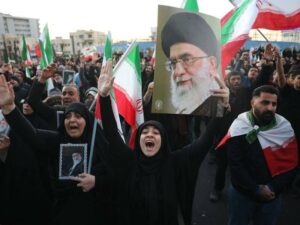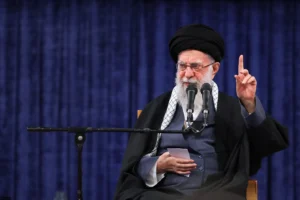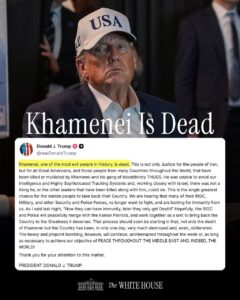The Edo State governorship election is approaching, with three main candidates battling for votes to win. In this review, we look at the chances of the candidates before Saturday’s vote.
Though the Independent National Electoral Commission (INEC) has listed 17 candidates for the election, it has become a three-way race between Asue Ighodalo of the Peoples Democratic Party (PDP), Olumide Akpata of the Labour Party (LP), and Senator Monday Okpebholo of the All Progressives Congress (APC).
Former Governor Adams Oshiomhole and current Governor Godwin Obaseki are key figures in the election, each supporting their party’s candidate. Obaseki backs Ighodalo, while Oshiomhole supports Okpebholo.
While this election has similarities to the 2020 election, the rise of the Labour Party introduces uncertainty that could impact the result.
Power Rotation in Edo Politics
Edo State is divided into three senatorial districts: Edo South, Edo North, and Edo Central. Edo South has the most local governments (LGAs) with seven, followed by Edo North with six, and Edo Central with five.
Since 1999, power has rotated between the districts. In 2007, Oserheimen Osunbor from Edo Central was elected, but after the courts nullified the results, Oshiomhole from Edo North became governor. In 2016, Oshiomhole supported Obaseki, who is from Edo South.
There was hope that this time power would shift back to Edo Central. However, Oshiomhole backed Dennis Idahosa from Edo South during the APC primary, but when Idahosa lost, Okpebholo from Edo Central became the APC’s candidate.
The Labour Party went in a different direction by choosing Akpata from Edo South, which has divided some supporters who felt Edo Central should get the governorship.
Primary Election Fallout
All major parties had internal conflicts during their primaries. In the APC, it took the party leadership to settle disagreements between candidates. Oshiomhole’s preferred candidate ended up as the deputy governor choice.
In the PDP, Deputy Governor Philip Shuaibu from Edo North tried to challenge Obaseki’s preferred candidate, Ighodalo, leading to his impeachment. Shuaibu now supports the APC candidate.
Omobayo Godwin, a young politician, has been chosen as the new deputy governor candidate by Obaseki to replace Shuaibu.
Senatorial District Influence
The PDP and APC have candidates from Edo Central with running mates from Edo South, while the Labour Party’s ticket includes a Christian-Muslim pairing with running mates from Edo South and Edo North. Edo Central will be a battleground between the PDP and APC, while Edo South is expected to be contested by all three parties.
Edo North is considered an APC stronghold, but the Labour Party hopes to gain votes from the Muslim population there by choosing a Muslim running mate.
PDP’s success in the recent state assembly elections gives them hope, though the Labour Party might not perform as strongly without Peter Obi on the ballot.
There has been criticism of the APC candidate’s public speaking abilities, with some describing him as unpolished.
The economy will play a role in the election, as many voters are unhappy with current conditions. However, the ruling APC has the advantage of federal power, a factor that worries opposition parties like the PDP.
Governor Obaseki has refused to sign a peace agreement for the election and has called it a “do or die” affair.







